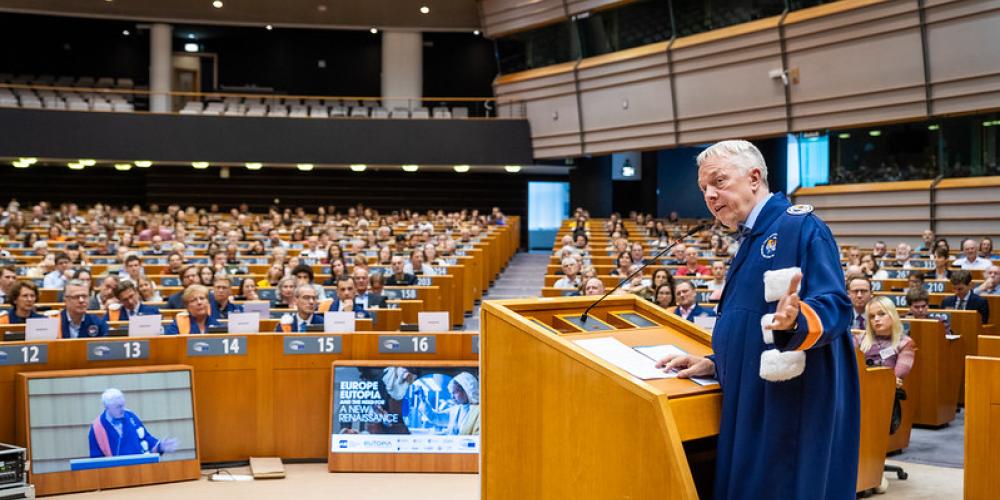
If it were up to rector Jan Danckaert, we would be on the cusp of a new Renaissance, a new era in which scientists, politicians, artists and, by extension, the whole of humanity would surrender to curiosity, openness and connection. “Science, science diplomacy, open science and networks like EUTOPIA can be a driver of that new Renaissance, of that new spirit that Europe needs, with multilingualism as the norm,” said the rector in this interview at the start of the new academic year.
Jan Danckaert has had a turbulent time: first, he suddenly had to take over from his predecessor and dear colleague Caroline Pauwels, who died in August last year. Then, after his election, he unexpectedly had to undergo major heart surgery himself. He’s now on the mend. “It’s going well,” he says. “Before the holidays I did an exercise test, which indicated that I’m back to normal in terms of fitness for a man of my age. I’ve now started exercising with an intern from VUB’s Physical Education and Movement Sciences programme. She’s guiding me towards a life with more exercise. We started with the exercises I had to do at the end of my cardio rehabilitation. Now we’re also doing muscle-strengthening exercises. It’s normal for men to lose some muscle mass as they get older. I want to do something about that, with a healthy lifestyle on top. But it’s certainly not my intention to be parading around with a six-pack any time soon.”
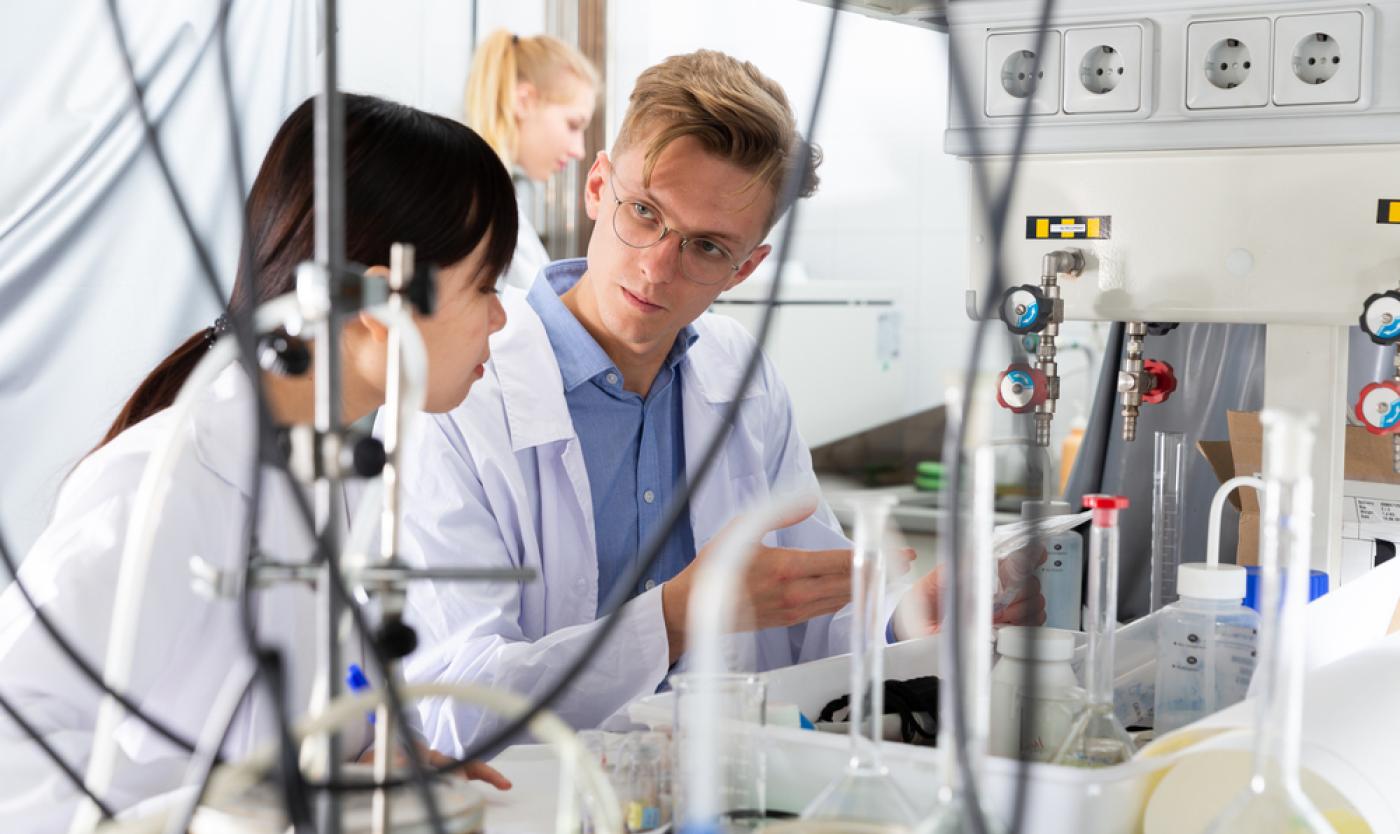
“In a larger team, you can divide tasks better and you create more space for research, especially for the young researchers.”
An increase in scale at university level and research group level was one of his objectives at the start of the last academic year, when he gave his first opening speech in the large halls of the Anderlecht Abattoir. How are those larger research groups doing?
“A call was launched among the research groups during the previous academic year to see who could work together on which levels and subjects,” says Danckaert. “An evaluation followed and now we’re looking at the whole picture. We’ll communicate about this soon, by the way. The process was organised bottom-up, nobody was obliged to do anything and no research group has to merge into a larger whole. But it is encouraged. In a larger team, you can divide tasks better and you create more space for research, especially for the young researchers. I also announced last year that there should be more focus on team performance, rather than individual performance and competition. At the same time, we’re considering a more flexible way of allowing ZAP staff to grow within their departments, provided a new promotion system is in place. This is being tested and developed. Currently, a request for promotion is submitted by a ZAP and, once approved, they have to compete with colleagues applying for a promotion. We want to get rid of that. Now, if there’s a positive response to the request, that promotion will happen within set deadlines, which must be respected.”

“Our university has absorbed that shock well. There were no direct redundancies, only natural layoffs, and there were no cuts in the research budget.”
It wasn’t just an eventful year for the rector himself: the university also found itself in difficulty after energy prices shot to unprecedented heights as a result of the conflict in Ukraine. That war on our continent sent shockwaves through the energy markets, resulting in rocketing inflation that abruptly made life more expensive for each of us. For a while there was panic, and rumours of layoffs crept into the press: it was about to become nasty. “Our university coped well with that shock by making savings wherever possible,” Danckaert stresses. “There were no direct layoffs, only natural layoffs. In a few years, however, we will have to make do with fewer staff so we can balance current expenditure with funding. There were no cuts in the research budget either, but we took the opportunity to scrutinise our core teaching and research tasks through the core tasks debate. We had to stop some strategic projects, which also meant that the contracts of some staff were not renewed.”
Besides these necessary savings, renovations and infrastructure investments are also suffering. So, the speed of renovation has to drop sharply and some investments either won’t happen or will be postponed. “VUB receives about €5 million a year in coloured subsidies, but we need €35 million a year. You can’t fill that through the inadequate core funding, nor can you fill it through external debt financing alone, because it must be able to be repaid. Therefore, we are forced to postpone some necessary renovations and investments in education and research infrastructure. This affects our capacity for growth as a university and our ability to teach more students. We submitted a deficit budget this year and efforts are being demanded in all parts of the university. Fortunately, energy prices have levelled off a bit, although they remain high. The problem is actually deeper and structural: the current basic funding is not sufficient to cover rising expenses due to inflation, which includes energy bills, salary costs and building costs. Moreover, we have an increasing number of students at VUB, which in turn requires additional staff and space.”
That basic funding has been a problem for some time. The university gets its income from basic funding for operations and teaching staff, but it doesn’t cover all costs. However, the higher education codex is clear: operating allowances help cover ordinary expenses for teaching, research, social and scientific services, investment financing, loan repayments and the institution’s administration, including movable property.
“Since 2008, there have been several times when the Flemish government has not respected the provided indexation mechanisms and growth paths,” Danckaert says. “Moreover, it implemented austerity measures that continue to this day. As a result, Flemish universities and colleges together received €350 million less in 2022 than they were counting on.”
Additional funds were granted in recent years, however. In 2023, for instance, the index provision system was introduced, offsetting the impact of the pivot index for staff costs. In 2023, a one-off envelope of €15 million was pledged to cope with increased quotas in the Medicine and Dentistry programmes in Flanders. For 2024, €59 million has been promised to settle the higher operating costs of recent years, of which €20 million goes to basic university funding, €10 million to the Medicine and Dentistry courses, €15 million to teacher training and €6 million to student social services.
“It is a nice package and we obviously appreciate these additional financial resources, but you cannot avoid the observation that this is disproportionate to the unacquired costs. Moreover, these contributions do not fully compensate because some of the additional funds are also associated with additional tasks.”
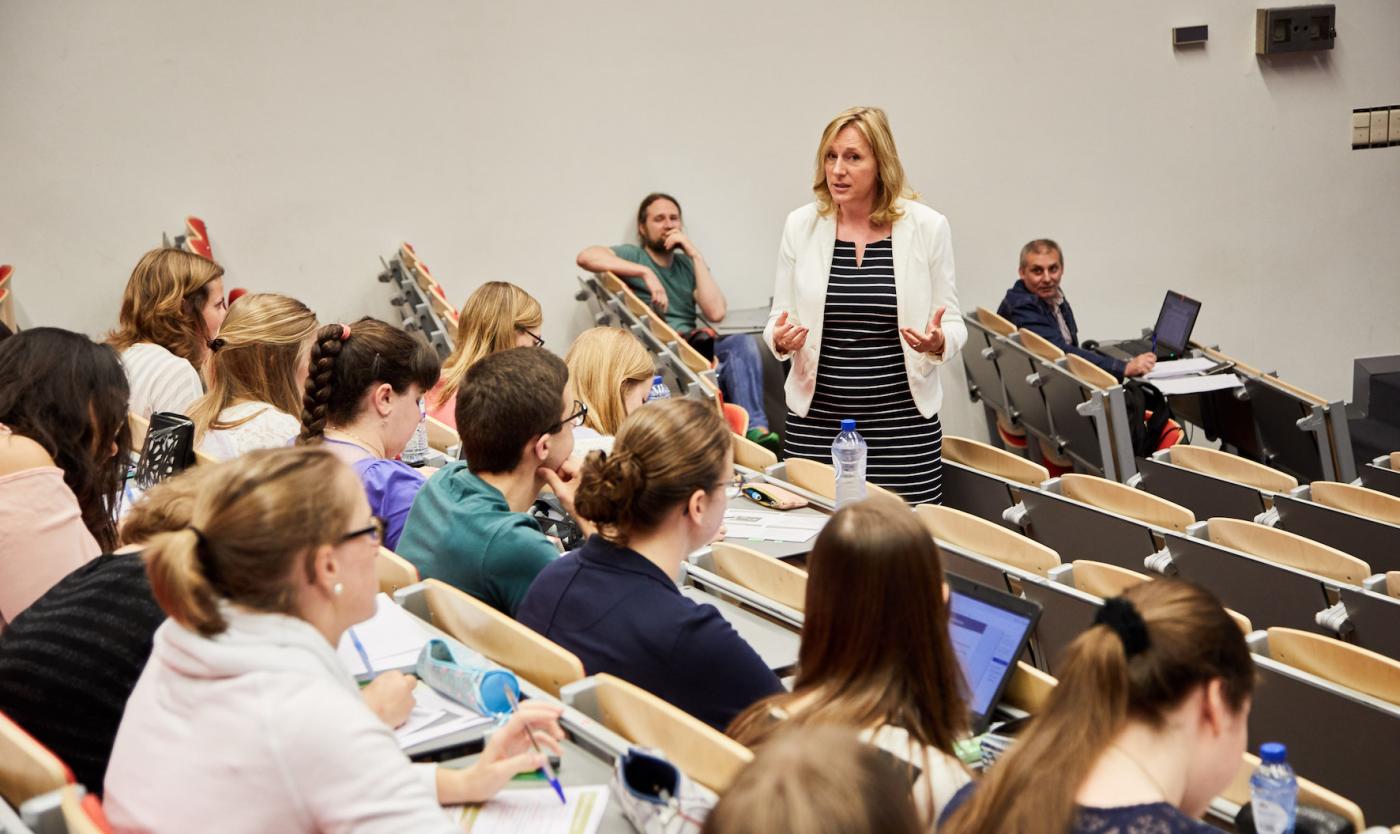
“I don’t think a bit more English in some graduate courses is a danger to Dutch.”
Some Flemish universities came under fire from Education minister Ben Weyts in recent months, because he felt they were overly eager to teach in English, putting Dutch under threat. What does the rector think about this? “We need to internationalise and embrace multilingualism,” he insists. “VUB therefore supports multilingualism, especially as the international dimension in the labour market and in science continues to gain importance. It’s important to underline that internationalisation does not equate to ‘Englishification’. When the lingua franca in the late Middle Ages was Latin, all those other languages continued to flourish alongside it. I don’t think a bit more English in some graduate courses is a threat to Dutch. Those who graduate as engineers end up in an international context and in mixed teams anyway. They may as well be well prepared for that.”

“The advantage of the EUTOPIA cooperation model is that it is very accessible for those who are struggling financially, or who don’t have the opportunity to spend months at a time abroad.”
“Hence also the importance of a model like EUTOPIA, our inter-university collaboration with nine European partners. In that context, students, researchers and other stakeholders will be able to participate in an international programme in an accessible way through 40 learning and research networks that are already active this academic year, or will become active. The model works differently from the established Erasmus programme, which of course still exists: with Erasmus you provide a unique experience abroad for one participating student, while with EUTOPIA the universities themselves also benefit from that international experience.”
Danckaert cannot emphasise enough the added value for university and students because. “Through cooperation, you also get enrichment of the content and of the research. The model has already led to operational learning and research networks, with collaborations around the same problem in an institutional way between 10 universities (or some of them),” he says. “Moreover, it’s a means of transcending the differences in the social debate in different places in Europe and an excellent entry point for European integration. It teaches us to transcend our local views and to listen to the views of others, who may perceive the same debate in a different way. It teaches us to step out of our bubble and take a critical stance on our own positions, where everyone is too quick to insist on their own rightness. And we shouldn’t forget that such models of collaboration allow the smaller language communities to gain importance: each researcher can participate in the debate or research from their own local situation, and each learning network is actually a European story of equal partners.”
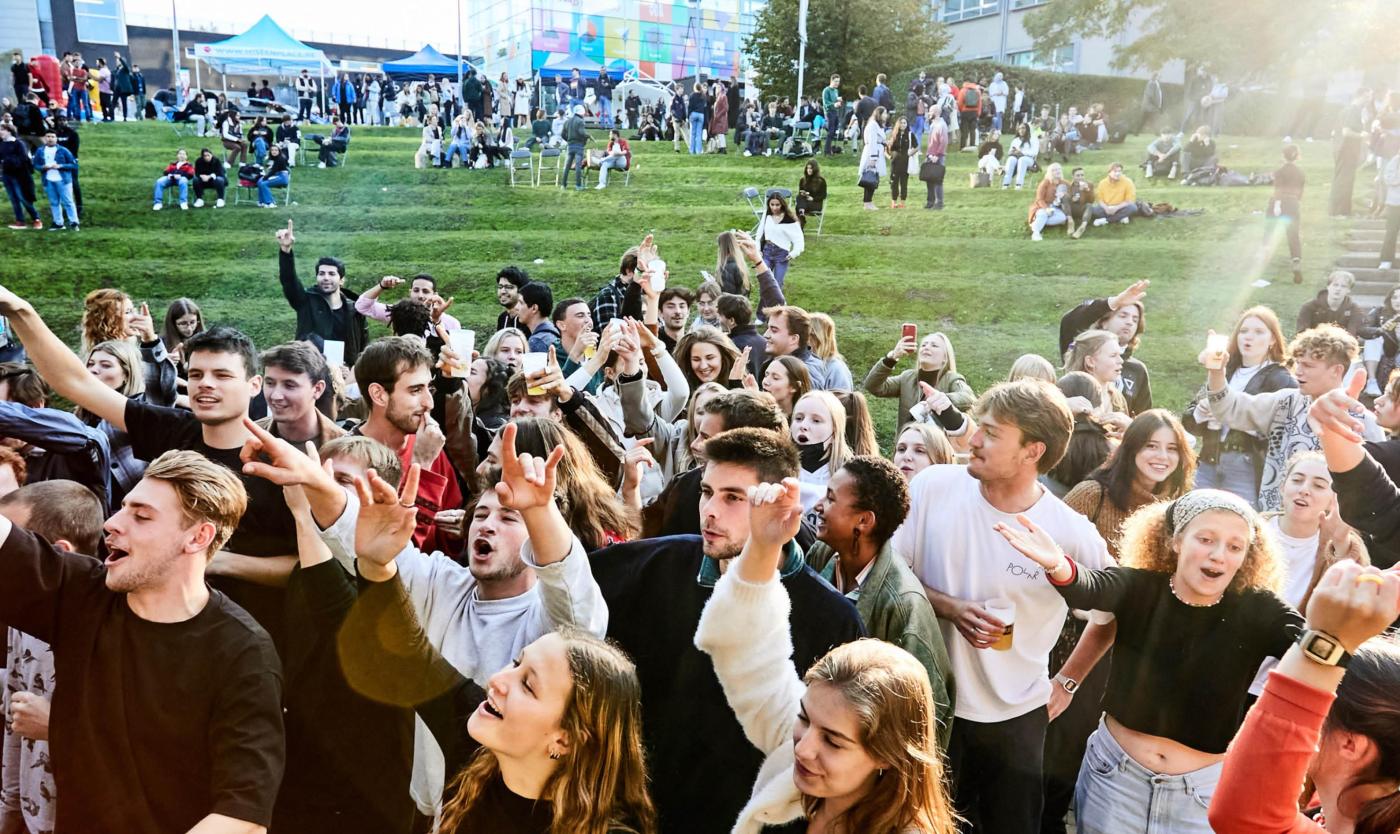
“Students from very diverse backgrounds are finding their way to VUB, which is encouraging. It’s an asset with challenges, though.”
The advantage of the EUTOPIA cooperation model is that it is very accessible for those who are struggling financially, or who don’t have the opportunity to spend months at a time abroad. The students and researchers mainly work together in a virtual environment. Sometimes, when necessary, they also meet physically at events or workshops. Moreover, it’s a good reflection of the Brussels environment, which is very international, and our own university context follows the same trend. “We are indeed seeing an increasing diversity in the student population in our undergraduate programmes,” Danckaert says. “That means students from very diverse backgrounds are finding their way to VUB and that is encouraging. It’s an asset with challenges, though, because many of those students need extra support. Often they come from Brussels schools that are particularly hard hit by the teacher shortage, young Brussels natives for whom moving on to higher education isn’t a given. A quarter to a third of these new students have problems with language skills at academic level, particularly with reading comprehension. At VUB we want to respond to this, by testing the academic Dutch of those students, after which we can remedy and improve their understanding. That language knowledge is necessary to be able to process a lot of learning material. VUB is not alone in facing this problem: all educational institutions have to deal with it. Secondary education doesn’t always succeed in guaranteeing the desired language level and the teacher shortage creates gaps in prior knowledge that varies from school to school, even from class to class.”
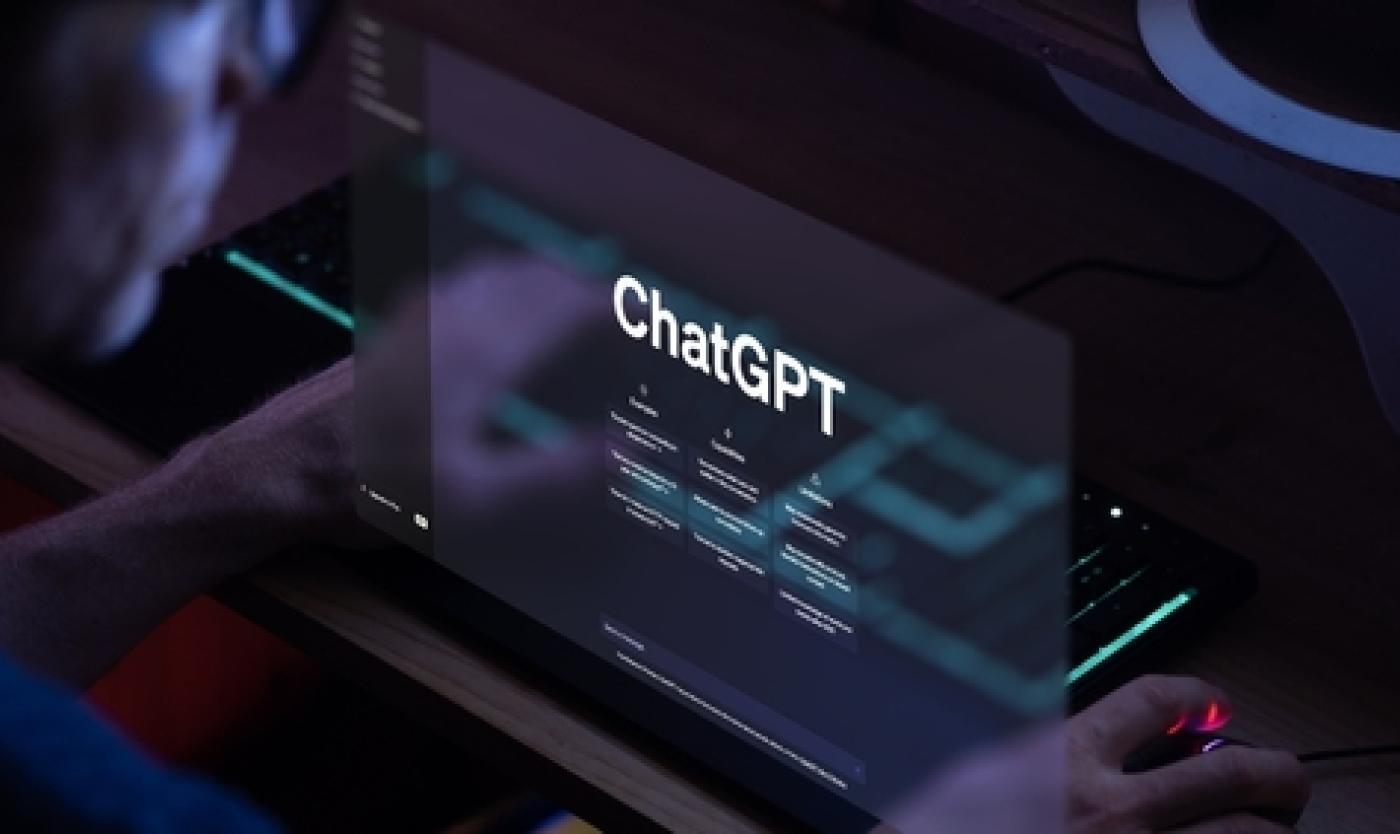
“We are building a process that will determine what is allowed and what is not allowed, and an ethically responsible way to use AI in the curriculum.”
Maybe those students can make do with AI-driven language applications, such as ChatGPT? “Artificial intelligence is going to change our university,” Danckaert says. “We shouldn’t be afraid of that. Go back to the Renaissance, when the printing press caused an immense revolution and knowledge and science became more widespread in just a few decades than in all the centuries before. The same printing press led to an unprecedented acceleration in scientific insight. In my view, we are now experiencing something similar that we must embrace. We must learn to use such tools and use them properly. And always remain critical of what we are presented with... It goes without saying that the message for our students cannot be that ChatGPT takes over their substantive work. But AI already plays an important role in medicine or for recognising patterns in huge amounts of data that we can’t see ourselves. AI tools can also help students. At VUB, we are building a process that will help us determine what is allowed and what is not, and an ethically responsible way to use AI in the curriculum. There is already a guideline for teachers. A possible solution against fraud could be for students to add their conversation history with ChatGPT as an attachment for language assignments for checking. Or we should turn more to proven means to combat possible fraud, with oral exams, for example, or by presenting students with concrete problems that they can only solve by thinking it through themselves. In any case, we will adjust our exam regulations from this academic year onwards, and ChatGPT will now be mentioned under the heading of plagiarism.”
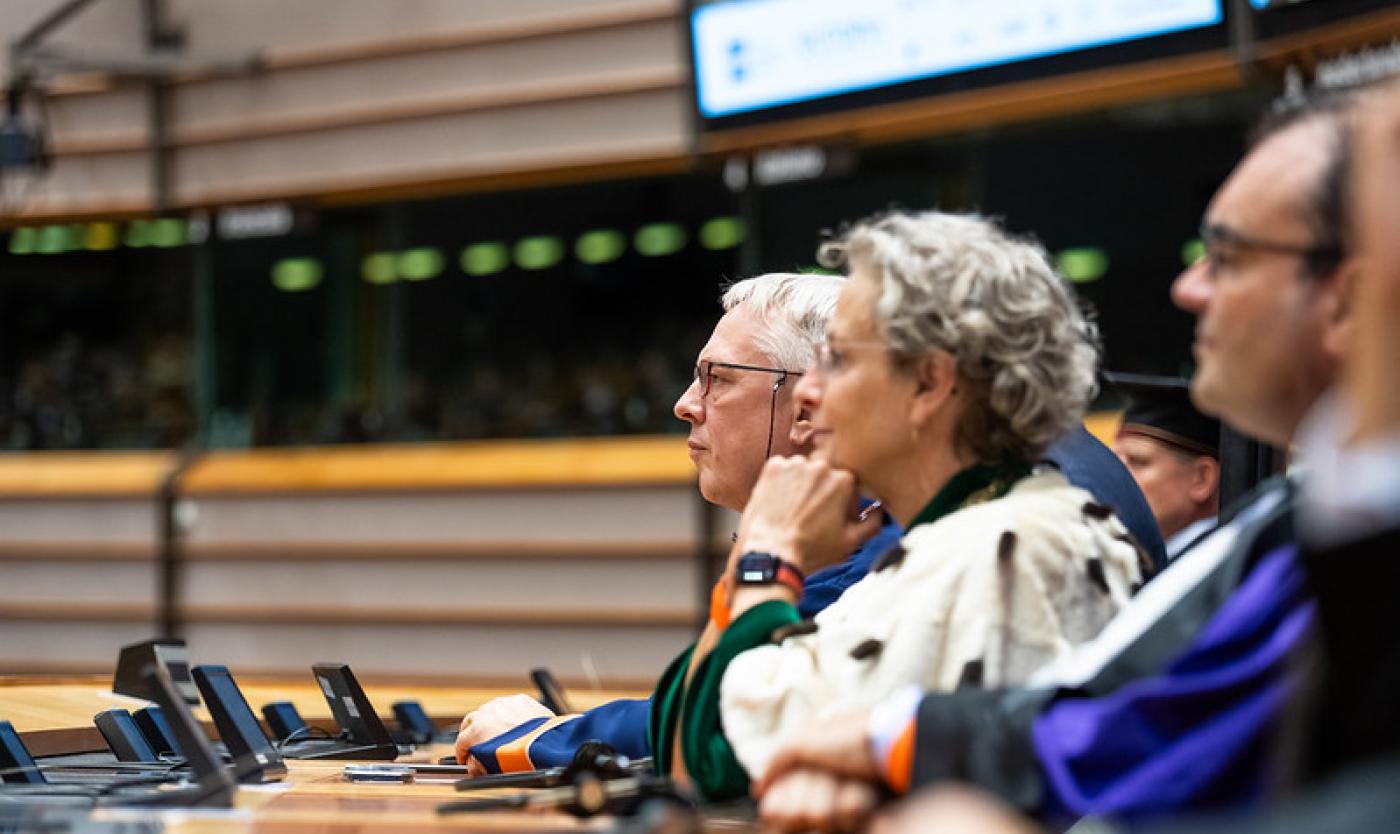
“Openness is the essence of the rapprochement we seek beyond our national borders.”
The art of printing brings us to another of the rector’s pet subject: the Renaissance and the Enlightenment, two periods in our history that were characterised by a flourishing of the sciences, when major steps forward were taken. “I think there is a need for a new renaissance,” Danckaert concludes. “That turning point in our recent history was driven by curiosity, by openness to the world and by connection. Science can connect people and communities, just as we choose to connect various European universities within the EUTOPIA network, in complete openness and with a great desire to get to know each other better. Openness is the essence of the rapprochement we seek beyond our national borders, even beyond the borders of our beautiful Europe.”